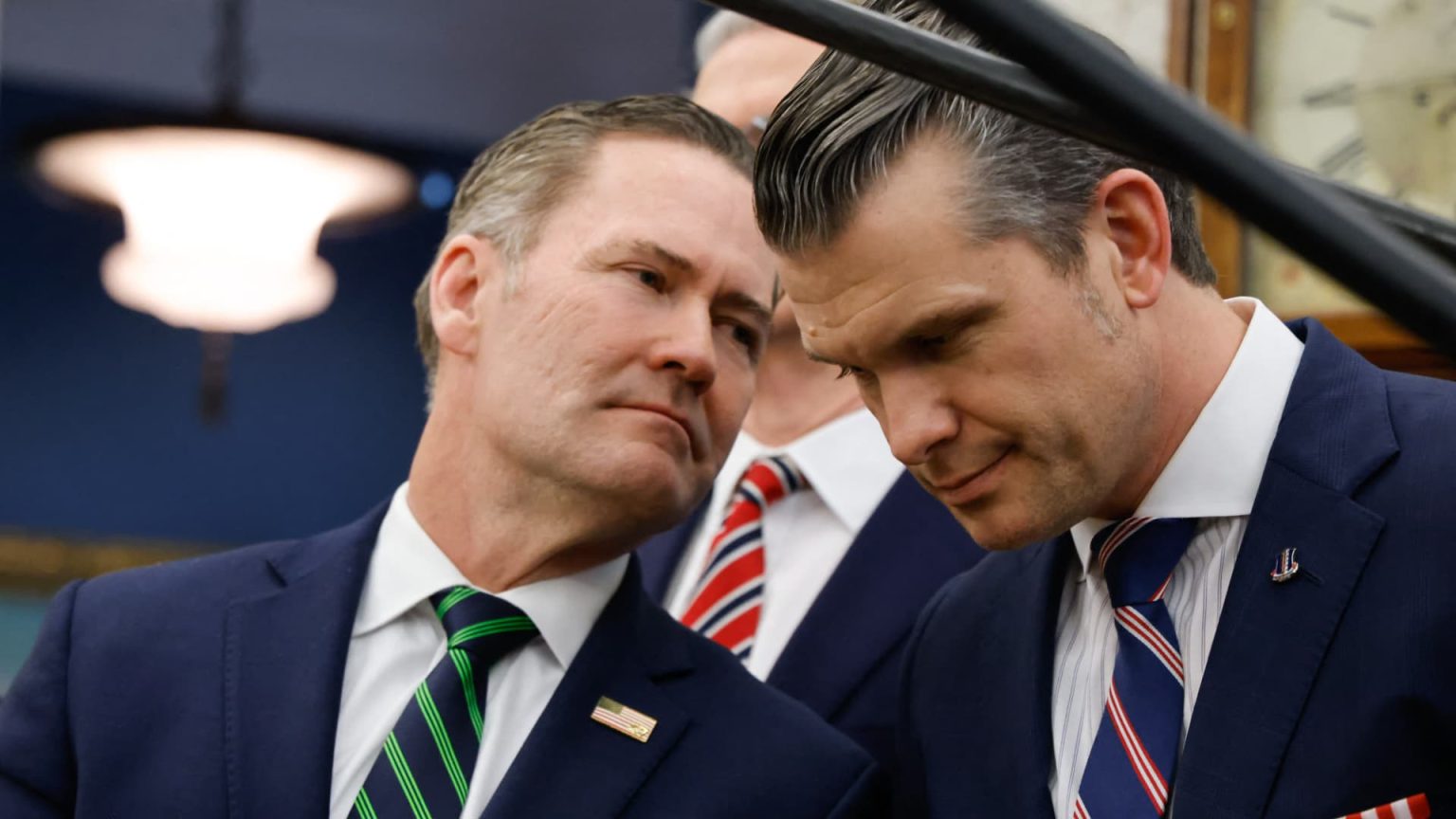A recent revelation involving the Trump administration has drawn significant attention as The Atlantic published a previously withheld text thread from a Signal group chat that included sensitive discussions related to U.S. military strikes. The publication came after conflicting statements from officials regarding the classification of the shared messages, raising concerns about the implications for national security. The controversy highlights ongoing tensions between the administration and the media, as well as the potential risks posed by disclosing operational details.
| Article Subheadings |
|---|
| 1) Details of the Thread Disclosure |
| 2) Reactions from Administration Officials |
| 3) Implications for National Security |
| 4) Media’s Role in Controversy |
| 5) Political Fallout and Future Implications |
Details of the Thread Disclosure
On a Wednesday, The Atlantic formally released a full transcript of text exchanges from a Signal group involving key members of the Trump administration. This disclosure followed a bombshell report where The Atlantic’s editor in chief, Jeffrey Goldberg, revealed he had been inadvertently included in discussions concerning planned airstrikes against Houthi targets in Yemen. The disclosed texts contained operational details regarding the imminent attacks, including the timing and specifics of military actions. The decision to publish the unredacted information arose from assertions made by President Donald Trump and other officials that the contents of the messages were not classified and did not pertain to “war plans.”
Reactions from Administration Officials
In response to the publication of the thread, White House Press Secretary Karoline Leavitt took to social media to critique The Atlantic and its handling of the situation, emphasizing that the messages were not classified under current U.S. protocols. She stated, “The Atlantic has conceded: these were NOT war plans,” framing the publication’s narrative as sensationalist. Additionally, Defense Secretary Pete Hegseth affirmed that there were no discussions of war plans, reiterating that newly revealed texts focused on military operations rather than broader strategic frameworks. The remarks from administration officials, including Secretary Hegseth’s brief commentary, appear to steer the narrative toward defending the intent and security protocols observed during the discussions.
Implications for National Security
The publication of the text messages has raised profound concerns regarding national security and the potential consequences of exposing operational details from military discussions. Goldberg warned that had the information been intercepted by adversaries, it could have jeopardized the safety of American personnel. He elaborated that this breach could have allowed hostile factions, like the Houthis, to prepare for surprise attacks, thus endangering the strategic outcomes anticipated by U.S. forces. The implications of releasing such sensitive communications could reverberate through military planning and protocols, leading to new discussions about operational security and the limits of communication platforms.
Media’s Role in Controversy
The role of the media in this unfolding story has been multifaceted and contentious. The publication of the Signal group chat by The Atlantic has prompted a range of responses from various factions within the political sphere. Critics have labeled the article as irresponsible, arguing that it undermines operational security and portrays the administration’s actions in a negative light. In contrast, proponents assert that disclosing the texts serves the public interest by promoting transparency regarding military actions. Goldberg highlighted the critical need for the public to access these texts to draw their own conclusions about the significance of the messages and decisions being made in non-secure communication channels.
Political Fallout and Future Implications
In the aftermath of the situation, the political fallout continues to develop. Prominent figures, including Senators Mark Warner and Mark Kelly, have voiced their outrage, demanding accountability and even resignation from Hegseth over what they perceive to be poor judgment and a lapse in maintaining secure communication practices. The backlash reflects broader frustrations with perceived unqualified leadership in sensitive positions. Additionally, criticisms from the Trump administration have focused on attacking the credibility and motivations of the media, with accusations of sensationalism aimed at Goldberg and other journalists involved. Trump has suggested that despite any mistakes made, he does not foresee any punitive actions stemming from this incident, indicating a desire to downplay its significance.
| No. | Key Points |
|---|---|
| 1 | The Atlantic published a text thread from the Trump administration discussing military strikes. |
| 2 | Officials, including President Trump, stated the messages were not classified information. |
| 3 | Reactions include significant pushback from administration officials claiming the texts were mischaracterized. |
| 4 | Concerns about national security arise from the potential exposure of operational details. |
| 5 | Political fallout continues, with calls for accountability from various government officials. |
Summary
The publication of sensitive communications involving the Trump administration has ignited a debate about the balance between transparency and national security. As dismissals and defenses emerge from various quarters, the situation serves as a reminder of the complexities involved in government communications and the critical nature of safeguarding information. The ongoing exchanges can potentially reshape perceptions of military accountability, media responsibility, and operational security, signifying the importance of carefully managing sensitive discussions in the future.
Frequently Asked Questions
Question: What was the nature of the messages shared in the Signal group thread?
The messages included operational details regarding planned military strikes against Houthi targets in Yemen, discussing specifics such as timing and weaponry.
Question: What did officials claim about the classification of the messages?
Officials, including President Trump, stated that the messages were not classified and did not constitute “war plans,” framing the narrative around the discussions as non-sensitive.
Question: How has the media responded to the publication of the texts?
The media has been divided, with some criticizing the decision to disclose the texts as irresponsible while others argue it serves a vital public interest by enhancing transparency around military actions.


